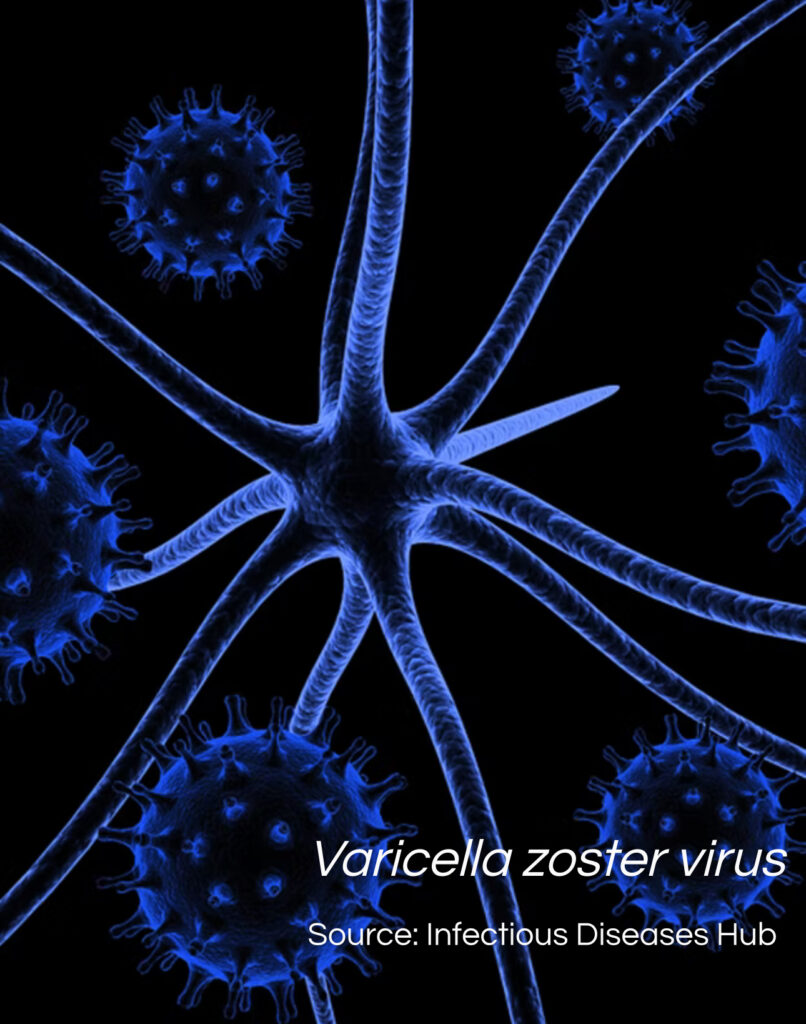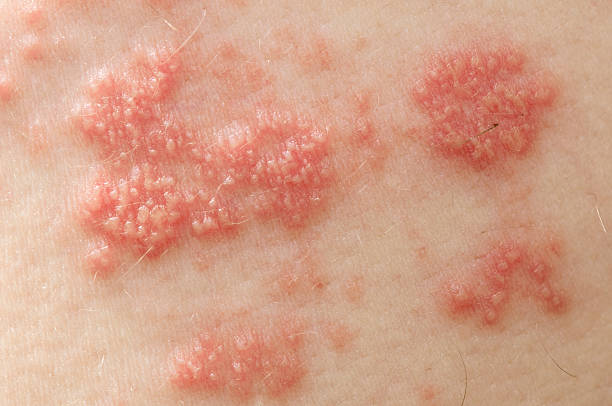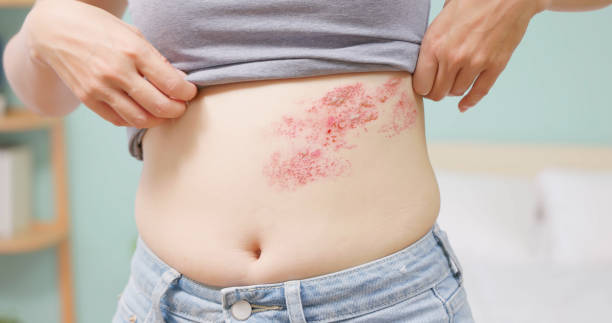Herpes zoster, commonly known as “shingles”, is an infectious disease caused by Varicella Zoster Virus and is common in people who have been infected with chickenpox. The disease is characterized by the appearance of red rash with blisters and in the form of strips on the body. Infected people feel abnormal stinging or even burning sensation in the affected area.
Why Does Shingles Occur?
Shingles virus is the same type as the virus that causes chickenpox. After recovery from chickenpox, the virus will remain dormant in the body and will not disappear. It does not cause any discomfort or symptoms. When our body’s immunity deteriorates, the virus will become active and cause herpes zoster. Elderly with weaker immunity are therefore more susceptible to shingles. But in fact, young people can also be susceptible to shingles, especially when facing academic pressure, lack of sleep, etc. Other factors such as diabetes mellitus, cancer, AIDS or long-term use of steroids may cause these patients to have reduced immune system and therefore have a higher risk of developing shingles.

Symptoms of Herpes Zoster (Shingles)
It can generally be divided into three stages: early, mid and late stages.
· Early stage: After the virus becomes active, patients may feel mild discomfort, fatigue, headache, fever and other symptoms in the early stage. They may feel an electric shock or burning sensation in certain parts of the body.
· Mid-stage: Within 1 – 3 days after the onset of the disease, patients may experience pain, tingling, or itching. Red papules, blisters, and even ulcers may appear on the skin. These are usually distributed along one or several dermatomes, forming herpes zoster. Herpes zoster can last from 1 – 14 days, during the time pustules or bloody fluid may appear. These will dry up and form scabs within 2 – 3 weeks.
· Late stage: After recovery, pain and other symptoms will gradually decrease. However, some patients may experience postherpetic neuralgia, in which pain may persist for months or years.
· Shingles may cause blindness if affecting forehead or eyes. Deafness is also one of the complications, though relatively rare.

How to Prevent Herpes Zoster (Shingles)
Improving immunity and receiving Zoster Vaccine (commonly known as Shingles Vaccine) can help prevent shingles, especially for the elderly. In addition to prevention of shingles, Zoster Vaccine (commonly known as Shingles Vaccine) can also effectively reduce disease recurrence in people who have had shingles before, and reduce pain and postherpetic neuralgia caused by shingles.
New generation of Zoster Vaccine can enhance immunity against zoster virus. A total of 2 injections (2 – 6 months apart) can prevent shingles and its complications with an efficacy of over 90%, providing effective protection for up to 10 years.
For any questions or inquiries, please contact our medical centre at 25628398 or WhatsApp 59999587.



